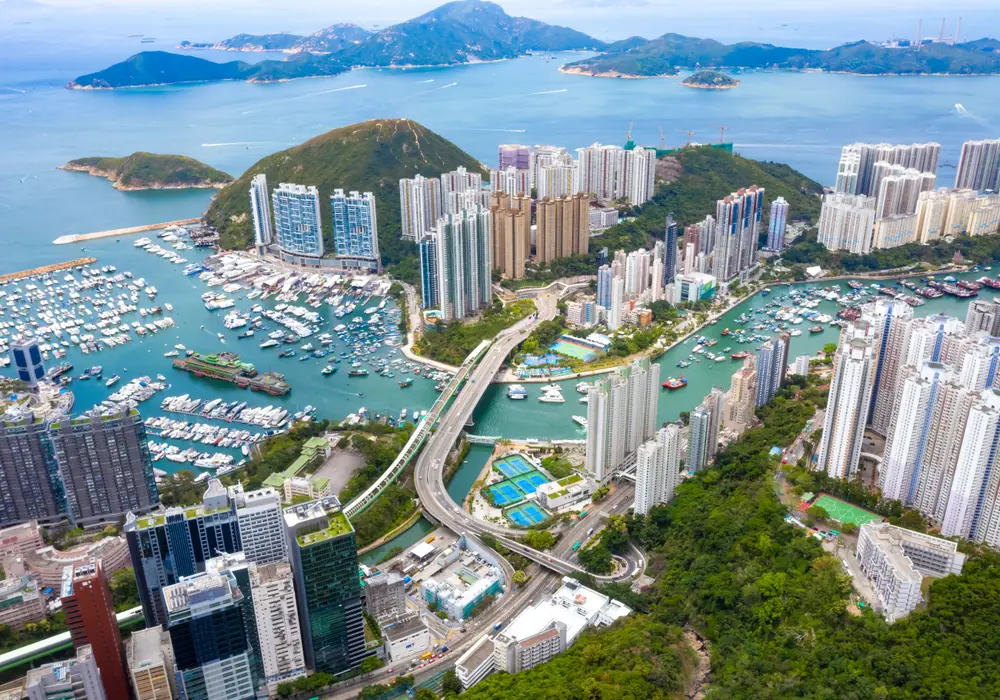
Steps to Find Suitable Housing
- 26 Jun 2023
- Living & Tax
Ready to make the move to Hong Kong? There are several factors to consider when seeking accommodation in the city – but your primary considerations should be neighbourhoods close to work, or, if you’re moving with kids, near your favourite schools.
Many non-locals base themselves on Hong Kong Island for its cosmopolitan feel.
- Mid-Levels West on Hong Kong Island is an ideal location for singles or young couples. It's a stone's throw from the Central Business District (CBD) and the entertainment districts of SoHo and Lan Kwai Fong, offering a wide range of restaurants and bars for your enjoyment.
- If you’re relocating with family, why not try nearby Mid-Levels East, which is close to Hong Kong Park and several top international schools.
- Also on Hong Kong Island is Kennedy Town, which lies just 10 minutes west of Central on public transport and is a top choice for young professionals and families, who can enjoy strolling along the promenade, swimming in the outdoor Olympic-sized public pool, or hiking the Hong Kong Trail.
Over on the Kowloon side, a similarly impressive array of residential options awaits.
- In the well-connected Ho Man Tin, for instance, there are four MTR stations within walking distance and an impressive network of international schools.
- Nearby Kowloon Tong is home to Kadoorie Avenue, a prestigious address where standalone houses sit along a peaceful tree-lined street.
- Further afield in Sai Kung and Clearwater Bay, you’ll find larger homes, often with terraces or gardens, situated next to beautiful beaches and stunning countryside.
Those looking for more space and a peaceful environment can head to the New Territories, which are a little further north of Kowloon but still boast great connections to Hong Kong Island.
- In the neighbourhood of Tai Po, for example, you’ll find several best-in-class international schools, and fuss-free transportation to Central via the MTR Shatin to Central Link’s crossharbour route.
- If you fancy a slice of island life, consider Discovery Bay. It is just a 30-minute ferry ride from Central and is home to a large expat community.
Other outlying islands popular with Hong Kong’s international residents include Lamma, Lantau, Cheung Chau and Park Island.
To find your ideal home in the city, explore the many property-listing apps available. These digital resources can help you narrow down your search and identify suitable living areas. For example, CENTAMAP, maintained by a private property consultant, is one such app that provides detailed information on local facilities and population statistics based on census data.
Depending on your needs and preferences, renting a house may be a suitable option for you. While the process can be complex, engaging a real estate agent can simplify matters and assist in negotiating lease terms. Lease agreements in Hong Kong are typically for two years with a break clause after a year, and tenants are usually required to pay an initial rent and security deposit of one to two months' rent. It's crucial to be clear on the details, including agency fees, stamp duty, management fees, or utility fees.
Once both parties have agreed on the lease terms, you will need to sign the lease agreement and pay the initial rent and security deposit. The lease agreement has to be stamped within 30 days after the date of execution. Before moving in, it's crucial to conduct a comprehensive inspection of the property with your agent to note any defects or damages and ensure that everything is in proper working order. Look for any water stains on the ceiling, bay windows and walls that indicate if there’re water leakages. And don’t forget to inspect electrical wiring, switches, water pipes, toilets and so on to see if they work properly.
It's worth noting Hong Kong’s apartments are often equipped with a plethora of great facilities, from swimming pools and saunas to fitness rooms and tennis courts. The average rent for private housing ranges from HK$270 per square meter in the New Territories area to HK$408 per square meter in Hong Kong Island, while the average purchasing price starts from HK$138,400 per square metre.
Found your ideal home and prefer to buy one? It’s essential to conduct a thorough research of your own. You can make use of the search engine provided by Property Information Online (PIO) to locate a property record and obtain essential information held by the Government, such as saleable area, age and permitted use.

Before you buy, you’ll need to get savvy with the legal procedures and requirements for property ownership in Hong Kong. A solicitor should draft a formal sale and purchase agreement based on the provisional agreement. In case the parties fail to sign the formal agreement, they are still bound by the provisional agreement.
The Provisional Sale and Purchase Agreement is signed initially after you and the vendor both agree on the deal. This is a legally binding contract that must be fully observed and performed by the parties involved. Next, a Purchase Agreement should be drafted by a solicitor based on the provisional agreement, which contains more detailed terms.
Need a mortgage? You’ll need to have six months’ worth of bank statements, a tax return and MPF records so the bank can assess how much they will lend you. Mortgage interest rates are mostly calculated with reference to the Hong Kong Interbank Offered Rate (HIBOR), also referred to as HKD Interest Settlement Rates or Prime rate (P), both floating interest rates. HIBOR fluctuates more, and the mortgage interest rate calculated with reference to HIBOR is usually subject to a cap. The prime rate is relatively stable, but the prime rate offered by each bank can be different.
Another point worth noting for prospective Hong Kong homeowners is that banks in Hong Kong don’t allow owners to apply for a mortgage before signing the preliminary sales and purchase agreement. Likewise, a property valuation is essential, as it helps secure mortgage applications.
Hong Kong is a great place to live, with a vibrant property market and a wide range of different properties available. Whether you’re looking for a sleek pad in Mid-Levels close to bars and restaurants or a spacious family home with hiking trails on your doorstep in Sai Kung, you will find plenty of great options.
Recent posts
-

Guide to hiring a domestic helper in Hong Kong
- 20 Jun 2025
- Living & Tax
-

Hong Kong: a family-friendly city
- 19 Jun 2025
- Living & Tax
-

Pet adoption: Second chances and forever homes
- 19 Jun 2025
- Living & Tax
-

Understanding Hong Kong's matrimonial process
- 13 May 2025
- Living & Tax
-

Go green: Embracing eco-friendly lifestyles in Hong Kong
- 06 May 2025
- Living & Tax
-

Step into wellness: Hong Kong’s sports facilities and activities
- 02 May 2025
- Living & Tax
-

Explore Hong Kong’s public health services
- 22 Apr 2025
- Healthcare & Welfare
-

Overview of Hong Kong’s Education System
- 17 Apr 2025
- Education
-

A guide for your children transitioning to Hong Kong primary & secondary schools
- 17 Apr 2025
- Education
-

Practical travelling: Owning a car in Hong Kong
- 11 Apr 2025
- Living & Tax

